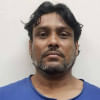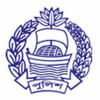Digital Security Act: Hardly an improvement on section 57
The proposed Digital Security Act to replace section 57 of the ICT Act is in some respects even broader than the one it seeks to replace and violates the country's international obligation to protect freedom of speech, Human Rights Watch says.
Mentioning that Bangladesh will undergo scrutiny of its human rights record at the United Nations Human Rights Council on May 14 as part of a process known as the Universal Periodic Review, the global rights watchdog has suggested that the government take this opportunity to commit to ending its crackdown on dissenting voices and criticism.
The much-debated Digital Security Bill-2018 is now at the parliamentary standing committee on posts, telecommunications and information technology ministry for its scrutiny. The committee has been asked to submit a report to parliament after scrutiny.
HRW, which published a report on Wednesday, said the government should pledge to lead a robust public campaign on the right to free expression.
It should also take strong action against militant groups who seek to suppress free speech by engaging in violent attacks on those holding different religious views, said the New York-based rights body.
The HRW report said scores of people had been arrested over the past five years in Bangladesh under section 57 of the Information and Communication Technology Act for criticising the government, political leaders, and others on Facebook, as well as in blogs, online newspapers, or other social media.
“The government of Bangladesh acknowledges that the current section 57 of the ICT Act is draconian, and needs to go,” said HRW Asia Director Brad Adams.
“But the new law being proposed is hardly an improvement, creating a series of new offences that will undoubtedly be used for years to come against government critics in the country's highly politicised criminal justice system.”
The 89-page report, “No Place for Criticism: Bangladesh Crackdown on Social Media Commentary” details dozens of arbitrary arrests since the ICT Act-2006 was amended in 2013 to incorporate harsher penalties and allowing the police to make arrests without warrant.
As of April 2018, the police had submitted 1,271 charge sheets to the Cyber Tribunal in Dhaka, claiming sufficient evidence to prosecute under section 57 of the ICT Act.
Press freedom is also under threat from section 57.
Many journalists and editors have been arrested for online articles alleging corruption, maladministration, or criticising particular individuals.
In June 2017, police arrested Golam Mostafa Rafiq, editor of Habiganj Samachar, for an article published in the online edition of the newspaper which speculated a ruling party MP would not get the party nomination.
Others were arrested for offending religious sentiment or for defamation.
The rights body said Bangladesh should hold civil society consultations to ensure that any new law passed to replace section 57 is compatible with its obligations under international law, and protects and respects freedom of speech.
Criminalisation of speech offences should be limited to the worst cases, such as direct incitement to violence, and not for criticism of the authorities or defamation.
Adams said, “Bangladesh authorities should accept that criticism, however unpleasant and hurtful, is part of public life and can serve to correct mistakes and provide redress.
“The government should work with domestic and international experts to draft a new law that fully upholds the principles of free speech and internet freedom.”

 For all latest news, follow The Daily Star's Google News channel.
For all latest news, follow The Daily Star's Google News channel. 







Comments